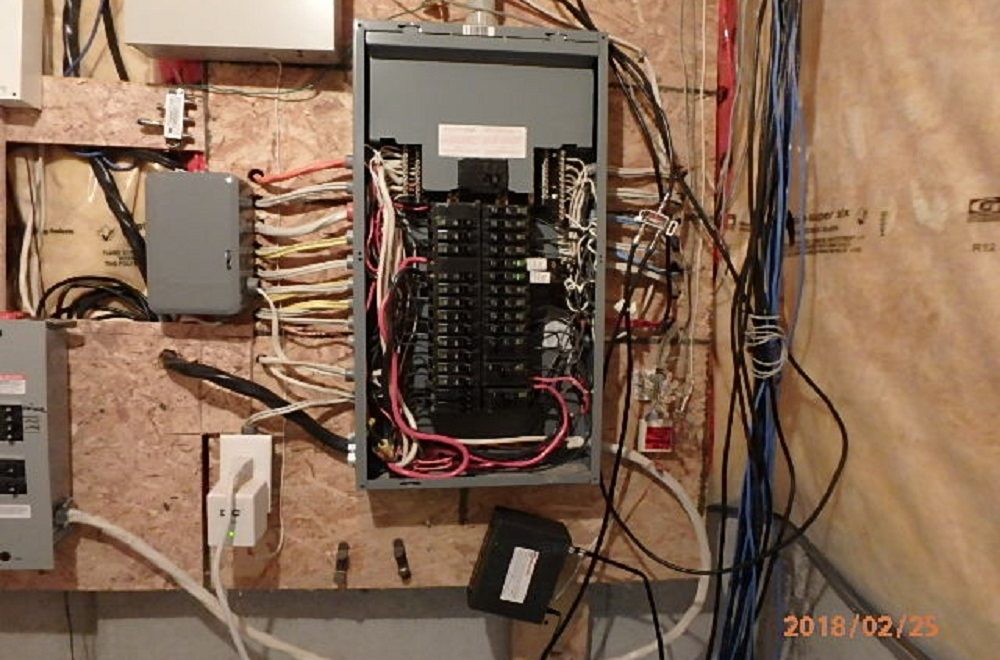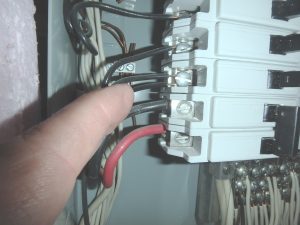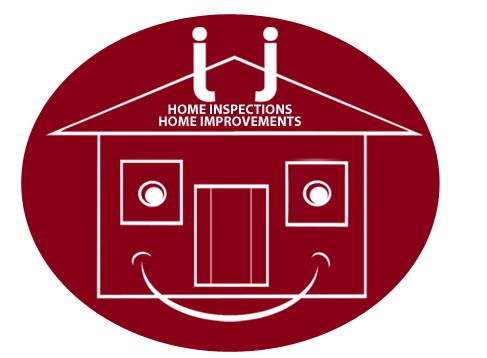
Electrical issues in homes other than being a nuisance can be dangerous for the home and its occupants. Sparks or short circuiting in a home can put the life of its occupants at risk through either electric shock or as a fire hazard. Certified home inspectors are trained to check the electrical system and its components for their operation performance and safety.
If a complicated problem is detected that goes beyond the standards of home inspections, it will be addressed in the report and followed up with a suggestion for electrician expertise.
The home inspector will check the service entrance of the house for both its size and its installation. A home inspector will remove the cover of the panel, and then proceed to check the breakers and fuses, the type and size of the wires, connections, and for double tapping (more than one wire being connected to a breaker). A home inspector will identify the type of wires being used, compare the gage of the wires with the amperage of the breaker, observe the grounding of the panel, and the bonding of the neutral bar. Any physical or water damages in the panel will be noted. Some older homes may have aluminum wiring or even “knob and tube” systems. In the case of aluminum wiring, the home inspector must make sure that the connections and the components are compatible with aluminum wires. “Knob And tube” systems are outdated and lead to a number of issues. Home inspector will note the potential for difficulties from using an older system.

The electrical distribution system will be checked. Light fixtures, switches, outlets, fans must be checked for their grounding, reverse polarity, and other safety matters.
For whatever reason a homeowner may forego a home inspection. Without a formal home inspection, it is always recommended that any homeowner at least have an electrical system inspected. The electrical system inspection can immediately alert a homeowner to potential dangers as well as existing defects, this is especially relevant to older homes or previously renovated homes. Not every home renovation contractor follows safety regulations. A proper home inspection can confirm whether or not this is an issue that needs to be addressed.

